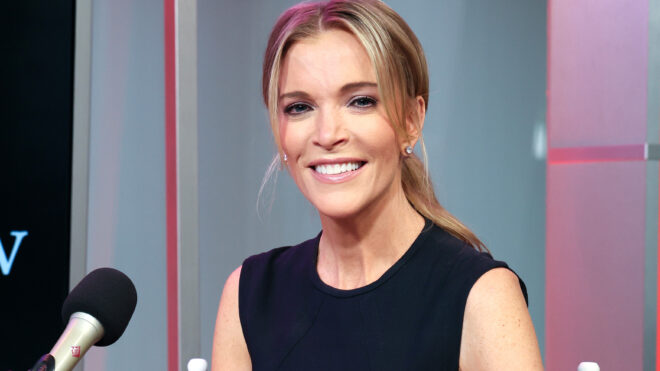
Parents are imperfect. We don't always get everything right when doing the hardest job on earth. One of the areas where parents have been known to screw things up royally for eons is trying to effectively communicate with our tweens about sex and puberty.
One of the big reasons is that these talks can be downright uncomfortable. We don't always know what to say, and if our kids feel shy about the talk, it can lead to a red-cheeked, nail-biting, making-excuses-to-end-the-talk-early-leaving-everyone-more-confused disaster.
As the mother of an extremely feisty 10-year-old who thinks she knows just about everything (about everything), I know firsthand how tough it can be. So I'm definitely not judging your discomfort at getting close to the subject of changing bodies and sex. Even the closest parent-to-child relationships can be tested by "the talk." But it's also so immensely important to have. And opening the door of communication shouldn't be just a one-time thing.
Gone are the days of having one "the birds and the bees" chat and sending kids on their way to navigate training bras, menstruation, and armpit hair. The truth is, those conversations should start early and continue throughout the years. Because, well, you can't possibly go over everything in one talk anyway. But what kids need to hear and understand changes as they change and mature, too.
It's a big job and an important one, though. Because kids need information, and the fact is, they're going to learn the nitty-gritty details about their changing bodies, hormones, and growing up from somewhere. It's really best if those things come from their parents or a trusted adult. There are so many important details, and it's easy to miss things when you're nervous or uncomfortable. But navigating the tween and teen years is tough. Making sure your kids understand these important things can make it a bit easier.
Here are a few important things you should make sure to cover when talking to your tween about puberty.
1. Everyone's timeline is different.
One of the things that makes puberty such a tough time is that everyone goes through it at a different time. Some kids, especially girls, can start puberty as early as 8 years old! For parents, it can be hard to believe that it's already happening. But what makes it tougher for kids who begin to go through changes at a young age is that they often feel different from their peers. Friends who may have been close from an early age can start to drift apart, too, when those changes start to occur.
Tweens may start battling with their emotions or feel uncomfortable with their changing bodies, especially if it seems like they are on a different timeline than their friends. So it's immensely important for parents to relay to children that nothing is wrong with them, whether they start puberty very early or later than most. Everyone is different with regard to when they start to change, and there is no "right" or "wrong" age.
2. Privacy is essential.
It's tough communicating with kids when we don't know what they need. That's especially true when they start showing small signs of going through puberty. But if we aren't completely in tune with what's going on, it's all too easy to overlook our kids' very essential needs. One of those biggest needs is for privacy.
It can feel strange to both parents and tweens. While we are used to our kids snuggling us up, wanting to be close to us, and, possibly, having a pretty open-door household, those things can change almost overnight. Suddenly, tweens start spending more time in their rooms. They keep their bedroom doors closed more often. Basically, they crave privacy for a number of reasons, but they may not know how to communicate that.
As parents, it's our job to make sure tweens understand that those very important needs will be met.
3. Mental health matters.
During the puberty talk, parents often focus on what's happening to their kids' bodies. But what's happening in their brains is massively important, too. For some tweens and teens, puberty can wreak havoc on their mental health, especially if they don't understand what's going on, that their discomfort, or shifting mood, is perfectly normal.
Parents have a really important job to do in communicating that puberty doesn't impact just bodies but also emotions. For many, that's the hardest part, too. It can lead to difficulties with relationships and really tough emotional struggles. The best way to prepare kids for that is to make sure they know they aren't alone in what they're going through and to keep checking in with them about how they feel.
4. Safe sex is a must.
Research has shown for many years that abstinence-only education doesn't work. In areas where abstinence-only education is taught, the rates of STDs and unplanned pregnancies are higher. So parents really need to focus not on telling kids to "never have sex" or "not have sex before marriage" but on teaching their teens how to go about having sex in a safe way when the time comes.
Of course, that means talking about birth control and the proper use of condoms to prevent sexually transmitted diseases. But it also means keeping those doors of communication open so that if they have questions, they know they can come to you to discuss it, and you won't be angry with them for thinking about having sex.
5. Consent is a must.
The topic of consent never used to make it into puberty and sex talks — not even in schools. But these days, we're seeing just why it's so important. Many tweens, teens, and even grown adults don't understand why consent matters. But accounts of sexual abuse are reported regularly. So it's crucial that tweens and teens understand that "no means no" isn't just polite, it's necessary when it comes to participating in sex.
Because most sexual assaults are committed by males, it's crucial to discuss consent with young boys. But girls need to understand that their wants and needs are important, too, and that they have the right to say "no" and to be listened to. No matter who you are talking to, consent should be part of the puberty conversation. It may even be the most important point not to overlook.




